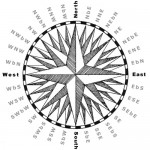Building on Past Successes for Future Directions

I have a lot of flexibility and freedom in my job. That's part of the appeal. The other day I was reflecting on the best route to take, the most fruitful path I should follow.
There are quite a few directions I could go. I could become meticulously detailed about style, knowing the ins and outs of every handbook (and being able to compare them with wit and perspective). I could become a tools guru in skinning online help, branding it with the right look and feel for our department. I could become a content producer, immersing myself in the product to write longer, more comprehensive topics.
Or I could become a SME project leader, organizing the writing efforts of a dozen or more subject matter experts (SMEs). I could become a manager, leading and inspiring my team. I could become a champion for usability, inserting myself into the design process and working towards better interfaces. I could become a content management specialist, managing the content for an entire team. I could become a community leader, or a single source champion, a taxonomist, a metadata specialist, a content strategist, a failing fiction writer, and many other things as well.
After reflecting on directions, I decided to focus on past successes. By successes, I mean those things from which I constantly hear praising feedback from customers. My main successes in tech comm have been with the following:
- Quick reference guides
- Screencasts
My longer documentation is fine, but no one ever writes in to say how much they enjoyed the user manual. In contrast, quick reference guides win users over every time, and screencasts actually show them how to use the product. People are always submitting feedback about how helpful the video tutorials were.
Outside of work, my two main successes have been as follows:
- Blogging
- Podcasting
Writing is my core strength, especially the blog format. And podcasts -- well, I seem to go in spurts with them. I don't think I'm a particularly good podcaster -- I just happen to be one of the few people recording podcasts in tech comm. Regardless, I love the conversations and connections I make in my podcasts. That professional interaction is rewarding.
Of all the above, I think screencasts hold the most promising future. I plan to move more fully in this direction for several reasons:
- I prefer to learn software by video (for example, by watching the videos at lynda.com). Text makes sense for a lot of things, but when people are learning software from ground zero (rather than searching for a specific question), visual learners prefer video more than text.
- Videos are something others cannot usually do. Everyone seems to think they can write, but few can actually record a screencast. This ensures that I'm putting effort into a skill that can't easily be replaced or outsourced.
- Video has a lot of room for growth. I can learn so much about audio and video themselves. I want to learn After Effects so that I can better demonstrate concepts. This would be a powerful skill.
My screencasting prowess is only mediocre at best. Eventually I'd like to get good enough to create videos such as the WordPress release videos, or Mailchimp's tutorials. I think there's a high demand for people who can create this type of content.
That said, I'm also fascinated by findability, and there's still so much here I haven't explored. Even though it's not my strength, perhaps I'll add it as a key area of focus.
That's me: quick reference guides, screencasts, blogging, podcasting, and findability. I guess that narrows it down enough. What's your specialization?
-------------------
photo from Flickr


